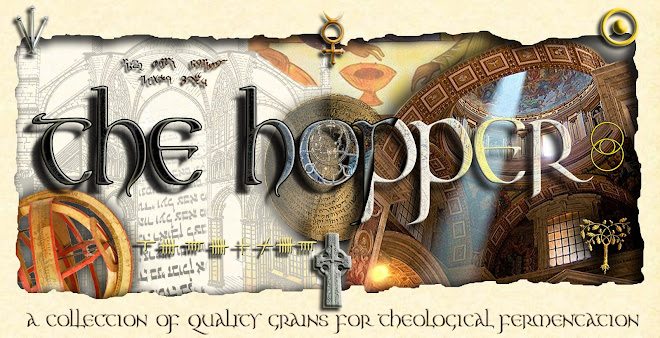The more I listen to how the Truth Projects talks about truth, the more I come to realize that it seems they have an urge to separate truth from Jesus. Of course they proof-text that Jesus is the way and the truth and the life, but they isolate verses that cast truth in the abstract rather than intimately connected with the incarnation (which in turn is intimately connected with the church). Then they make the declaration, “This scripture reveals that salvation is a result of a person's belief in God's truth claims.” This statement is irksome because scripture doesn't reveal that "salvation is a result of a person's belief in God's truth claims" but a life lived in the fullness of Christ.
It is also interesting that out of all of the proof-texts offered, they leave out Ephesians 4:21, which reads, “that is not the way you learned Christ! For surely you have heard about him and were taught in him, as truth is in Jesus.” It seems that they do not want to associate truth with the living community of Christ, as it is implied in Romans 10:8-10:
‘The word is near you, on your lips and in your heart’ (that is, the word of faith that we proclaim); because if you confess with your lips that Jesus is Lord and believe in your heart that God raised him from the dead, you will be saved. For one believes with the heart and so is justified, and one confesses with the mouth and so is saved.
The problem with how the Truth Projects talks about truth is that the confession that “Jesus is Lord” will no longer suffice. Now, we must confess that this confession is a truth that exist regardless of us and outside of us.
Does Jesus want truth to exist apart from us? It seems that the message of the incarnation is that the truth is near us, that God is wrapping all of creation into Godself. Granted, we need to guard against the danger of making truth whatever we want it to be (which is usually called a lie), but we also must confess that, by the grace of God, truth is with us, and indeed in us. If truth corresponds to God, and hell is separation from God, then why would we want to assert a particular kind of confession that emphasizes the separation of God/truth from humanity rather than a confession that emphasizes Emmanuel, “God with us”?
1. The Truth Project?
2. Wariness of The Truth Project
I also want to include this link to Hackman's Musings. He has honored me with a link to these pages, and I would be remiss not to link back to his thoughts on this topic. He makes numerous spot-on critiques and observations, as well as facilitates a much larger conversation in his comment section.





The Mormons say "Jesus is Lord." So, are Mormons saved if this simple phrase is the only proof for salvation?
ReplyDeleteMatt Paulson
Keizer, Oregon
Greetings Matt. Thanks for reading and posting. I never said that the confession “Jesus is Lord” is the only “proof” for salvation. It is precisely this rhetorical move that I’m trying to call into question. The Truth Project has constructed and categorized various “proofs” and has in turn used those “proofs” as the criteria of what it means to be a Christian. Two dangers come to the fore: 1) They create a criteria that excludes many orthodox Christians; 2) They frame the discussion in such a way that if anyone disagrees with them, then that person is categorically labeled illogical and representing a worldview that is not Christian.
ReplyDeleteIt seems to me that the Truth Project is trying to equate belief in truth claims with belief in Jesus Christ and the church, which is his body, the fullness of him who fills all in all. It also seems that this is drifting towards a new form of Gnosticism, because there is an overwhelming amount of talk about a specific knowledge of God, and a surprising silence on incarnational living. While I think truth claims are helpful and necessary, they must be held in the context of concrete practices and everyday living.
I chose the confession “Jesus is Lord” not only because it is scriptural but because it is documented that this was one of the earliest “creedal confessions” made by Christians at their baptism. That confession only makes sense within the context of a believing community that has taught what this confession means in everyday life. Part of my point is that the truth of Jesus Christ cannot be separated from
So with regards to Mormonism, I was not trying to identify a statement or creed that could successfully identify truth (or who is really Christian), I do not think such a statement exist. Regardless if a person is a Mormon or a fellow member of my congregation, it takes more than “a person's belief in God's truth claims” to be a Christian.